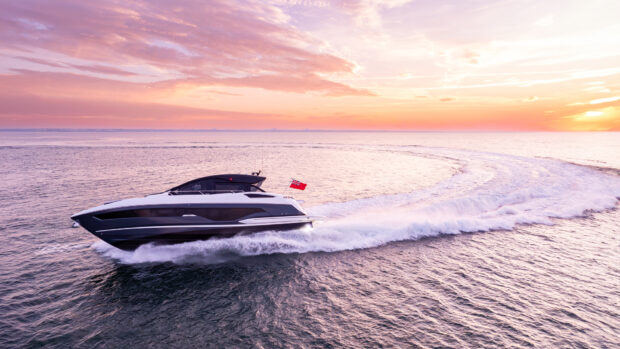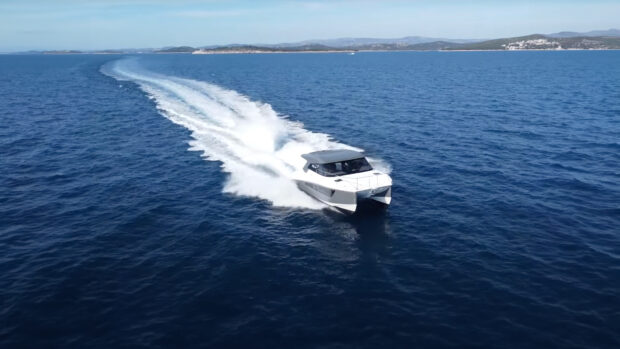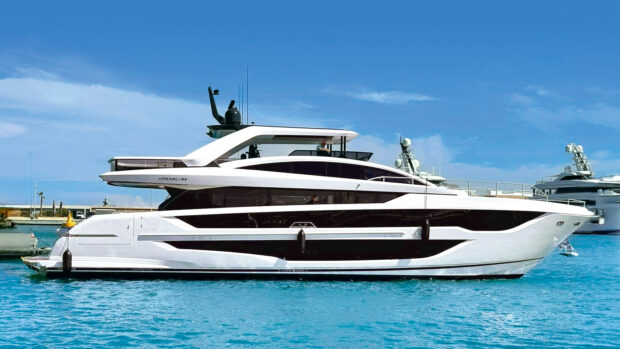Our detailed guide to European destinations.
EU member?
Yes.
Visas?
No.
Ship’s papers
Registration papers.
Proof of VAT-paid status.
Crew papers
Passports.
No certificate of competence needed if skippering a British boat in coastal waters.
If borrowing or chartering a French boat, you will need an ICC certificate, as the equivalent of their carte-mer and permis-mer.
Inland. If cruising inland, in a boat under 15m not capable of more than 20 knots, the skipper must have an International Certificate of Competence (ICC), and must carry aboard the Code Europeen de Voies de la Navigation Interieure (CEVNI) rules of the road, obtainable from the RYA. For boats above these limits, the necessary licence for foreign skippers has yet to be decided. It is therefore advisable to have an ICC and carry a CEVNI.
Report to Customs?
Not if arriving from EU country.
Yes, if arriving from non-EU country or have foreign nationals aboard.
Special regulations
Motor boats must not exceed 5 knots within 300m of the shore.
Inland waterways
Licence required for inland cruising, including the Seine upstream of Rouen and the upper reaches of other major rivers. Price varies according to size of boat and whether for one week, 30 days or one year. Can be obtained from VNF (Voies Navigables de France) offices at Le Havre, Rouen, Calais and Dunkerque, and waterways offices on the canals. In advance, contact Librarie VNF Tel: 00333 21 63 24 24 or Rive de France Tel: 00331 41 86 01 01 or, in the UK, France Afloat Tel: 01905 616428. The licence sticker must be displayed. A brochure with details of charges etc is available from the French Tourist Office in London. See below.
Tolls
These are charged on several waterways.
Diesel
Fuel berths at most harbours and marinas.
Water
Readily available.
Shore power 220V AC
Available in many marinas.
Berthing charges
Marinas generally as expensive, or more expensive, than UK’s South Coast. Price often includes shore power. Showers usually extra, around £1-2. Harbours usually cheaper.
LPG
French Butagas is readily available and can be used as Calor with the addition of a Butagas regulator.
Camping Gaz
Readily available.
Currency
French franc (100 centimes)
No limit on amount taken in. Cannot take out more than F12,000, or equivalent in other currencies, per person.
Credit cards
Widely accepted. Use in cashpoints. French credit cards more sophisticated than UK’s. If yours doesn’t work when “swiped” by shopkeeper etc, ask him to tap in the number.
Eurocheques
No longer widely accepted. Less and less useful in France.
Travellers cheques
Take in French francs.
Emergencies VHF
Distress and safety calls on VHF Ch 16 are monitored by CROSS, the French equivalent of our Coastguard. Good rescue service.
Emergencies phone
Ambulance 15
Police 17
Fire 17
General emergency services number 112
Pets
Must have certificate of health from vet. Not allowed if younger than 3 months. Max 3 animals, only one aged 3-6 months. If coming from country free of rabies for last 3 years, pet does not need rabies injection, but must have certificate issued within last 10 days stating has lived in UK since birth or for last 6 months. If coming from rabies-risk country, must have proof of anti-rabies injection, at least 30 days, but less than a year, prior to departure.
Telephone boxes
Use 5F pieces, or, more usually, phone cards (télécarte) bought in post offices, cafés and tobacconists.
Dialling code to UK
0044 then the number, missing off the first 0 of the code.
Weather forecasts
On north and west coasts you should be able to pick up Radio 4 shipping forecasts and gale warning on long wave. Further down the west coast reception is worse at night due to interference. Most marina offices post the day’s weather fax on their noticeboards. These are usually easy to understand even if your French is rusty.Many coast radio stations broadcast weather forecasts in French on VHF. See Macmillan Nautical Almanac for frequencies and times. Ashore, if your French is good , try ringing 08 36 68 08 then the two-digit number of the departement you’re in. For further details of this service, see Macmillan Nautical Almanac.
Trailing
If your trailing rig is legal in the UK, you should have no problems in France. Max weight for trailer without brakes, 750kg or half weight of towing vehicle, whichever is lower. If the overall length of the vehicle and trailer/boat exceeds 18m or width exceeds 2.5m you must get permission from police to trail as a large load.
Charts and books
Admiralty charts give good coverage.
Inland The French Navicarte guides are available from Kelvin Hughes.
Macmillan Nautical Almanac.
Shell Channel Pilot. Tom Cunliffe. Imray.
North Brittany and Channel Islands Cruising. Peter Cumberlidge. Yachting Monthly.
North Biscay Pilot. RCC Pilotage Foundation. Adlard Coles Nautical.
Mediterranean Almanac. Imray.
Imray cruising guides cover the French coast, in several volumes.
www.ybw-books.com
British Embassy
35 rue du Faubourg St Honore, 75383 Paris Cedex 08. Tel: 00331 4451 3100. Visit www.amb-grandebretagne.fr
Tourist office in UK
French Tourist Office, 178 Piccadilly, London W1V 9DB. Tel: 0906 8244123. Calls cost 60p per minute but there’s a real person at the other end. Alternatively, visit www.tourisme.fr
Language
French.
September 2001









